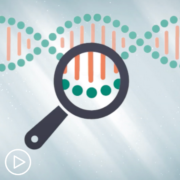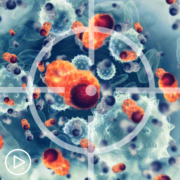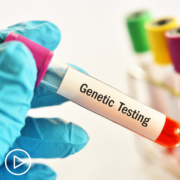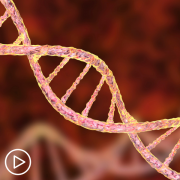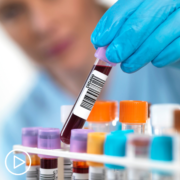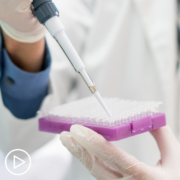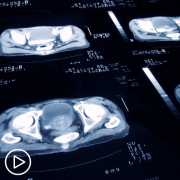How Does Immunotherapy Treat Bladder Cancer?
How Does Immunotherapy Treat Bladder Cancer? from Patient Empowerment Network on Vimeo.
Dr. Fern Anari from Fox Chase Cancer Center explains immunotherapy and how this therapy works to treat bladder cancer. Dr. Anari also discusses the importance of communicating how you’re feeling with your healthcare team.
Dr. Fern M. Anari is a genitourinary medical oncologist and assistant professor in the Department of Hematology/Oncology at Fox Chase Cancer Center. Learn more about Dr. Anari, here.
See More From The Pro-Active Bladder Cancer Patient Toolkit
Related Programs:

|

|

|
Transcript:
Katherine Banwell:
What is immunotherapy and how does it work to treat bladder cancer?
Dr. Anari:
So, immunotherapy, the analogy that I often use when I see patients is immunotherapy goes in by IV, and it acts as the drill sergeant. And it trains your own body’s immune system or the soldiers to find and fight the cancer cells. So, that’s really how it really works. The drug itself is training your own body to do the work.
Most people will have no side effects from this. And they tolerate it really well. However, because the immune system is getting a little bit activated, sometimes those soldiers or your immune cells can go rogue. And they can start attacking normal healthy tissue in the body, almost like an autoimmune disease.
So, when on these drugs, it’s really important if anything is new or different to let your doctors know, because it’s often easy to troubleshoot over the phone or at a quick office visit if it’s related to immunotherapy or not. So, it’s really important that you keep that in mind whenever a new symptom or anything may pop up.
Katherine Banwell:
That’s great information – it’s really important to communicate any issues you may be having. So, who is immunotherapy right for? Is it right for every bladder cancer patient?
Dr. Anari:
So, immunotherapy is used in several different settings for bladder cancer treatment. It’s used in the metastatic bladder cancer treatment world mostly. Often, we use it as either a second-line treatment after chemotherapy or in a maintenance-type approach after someone’s completed their chemotherapy, meaning we plan for about two years of treatment. And patients that can’t get chemotherapy for whatever reason we can use immunotherapy as a first-line treatment.
And it’s also used in localized bladder cancer meaning cancer that’s contained only to the lining of the bladder in patients who’ve gotten treatments that go inside the bladder called BCG. When their cancer isn’t responding, immunotherapy is also an option there.
Katherine Banwell:
And what might be some of those side effects that patients should look out for?
Dr. Anari:
So, what I tell everyone is they can get inflammation or an “itis” of anything. So, some examples of that: If someone has a rash, that’s called dermatitis. That can be mild, or it can be severe. If someone has inflammation of the bowels or colitis, they can have diarrhea that starts all of a sudden.
Another example is pneumonitis or inflammation of the lungs. People may have cough, trouble breathing, low oxygen levels. It really can affect any organ system that you have. So, that’s why it’s really important if something feels different to let your doctors know.
It’s also really important if you’re not near your doctor for whatever reason and you end up seeing a local doctor, let’s say, at an emergency room that you let them know that you’ve received immunotherapy because they’ll think about the problems that you’re having a little bit differently.



